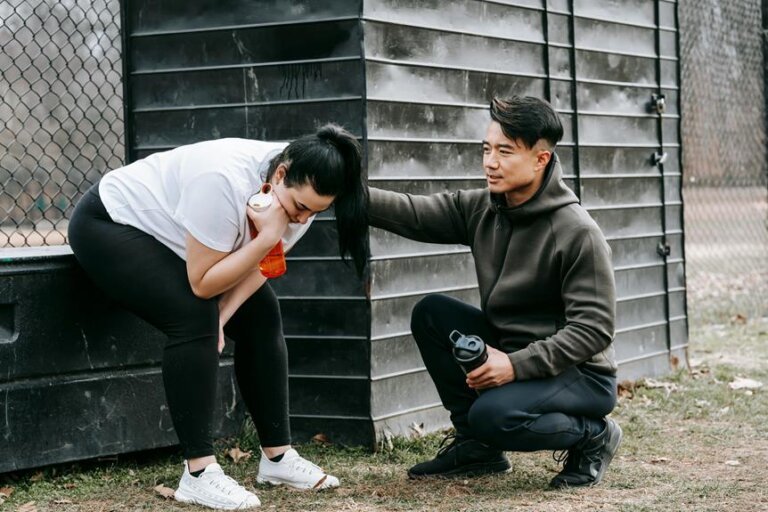The Importance of Cardiovascular Exercise for Aging Gracefully
Imagine a serene lake at dawn, its waters calm and steady. Just as the lake needs movement to stay fresh, your body craves cardiovascular exercise to age gracefully.
The impact of cardio goes beyond just physical appearance; it has profound effects on your overall well-being. From boosting your heart health to enhancing your metabolism, the benefits are vast.
But how exactly does cardiovascular exercise contribute to aging gracefully? Let's explore the reasons that make it a crucial component of your wellness routine.
Benefits of Cardiovascular Exercise
Engaging in regular cardiovascular exercise can significantly improve your overall heart health. When you engage in activities like running, cycling, or swimming, you're strengthening your heart muscle. This leads to a more efficient pumping of blood throughout your body, which can lower your risk of heart disease and other cardiovascular issues. Additionally, cardiovascular exercise helps to lower your blood pressure and cholesterol levels, further reducing the strain on your heart.
By incorporating regular cardiovascular exercise into your routine, you can also increase your overall stamina and endurance. This means you'll have more energy to tackle daily tasks and activities without feeling fatigued. Improved circulation from cardiovascular exercise can also enhance your body's ability to deliver oxygen and nutrients to your muscles, boosting your overall physical performance.
Furthermore, engaging in cardiovascular exercise releases endorphins, which are hormones that help reduce stress and improve your mood. This can have a positive impact on your mental well-being, contributing to a healthier and more balanced lifestyle.
Impact on Heart Health
Improving your heart health through regular cardiovascular exercise can have a significant impact on your overall well-being. Engaging in activities like running, cycling, or swimming helps strengthen your heart muscle, making it more efficient at pumping blood throughout your body. This increased efficiency reduces the strain on your heart, lowering your resting heart rate and blood pressure over time.
By challenging your cardiovascular system with exercise, you improve its ability to deliver oxygen and nutrients to your muscles and organs, enhancing their function and longevity.
Regular cardiovascular exercise also plays a crucial role in reducing your risk of developing heart disease and other cardiovascular conditions. It helps lower levels of bad cholesterol (LDL) while increasing good cholesterol (HDL), promoting healthier blood vessels and reducing the buildup of plaque that can lead to heart attacks or strokes. Additionally, exercise can help control inflammation in the body, further protecting your heart health.
Metabolism Boosting Effects
Boost your metabolism with cardiovascular exercise!
Not only will you feel more energized, but you'll also find it easier to manage your weight.
Additionally, engaging in regular cardio workouts can contribute to better heart health.
Energy Levels Improved
Increase your energy levels and rev up your metabolism through engaging in regular cardiovascular exercise. When you participate in activities like running, cycling, or swimming, your body becomes more efficient at utilizing oxygen and nutrients to produce energy. This improved efficiency leads to a boost in your overall energy levels throughout the day.
Cardiovascular exercise also stimulates your metabolism, causing your body to burn calories more efficiently even at rest. As a result, you may notice increased energy levels, improved focus, and a higher overall sense of well-being.
Weight Management Aid
Regular cardiovascular exercise can play a significant role in helping you manage your weight by boosting your metabolism. When you engage in activities like running, cycling, or swimming, your body's metabolic rate increases, allowing you to burn more calories throughout the day.
This boost in metabolism not only aids in weight management but also helps prevent weight gain as you age. By incorporating regular cardio sessions into your routine, you can create a calorie deficit, which is essential for weight loss.
Additionally, the effects of cardiovascular exercise on metabolism can persist even after you've finished working out, making it an effective long-term weight management strategy. So, lace up your sneakers and get moving to support your weight goals and overall health.
Better Heart Health
Engaging in cardiovascular exercise can enhance your heart health while also providing a metabolism-boosting effect. Regular cardio workouts strengthen your heart muscle, improving its efficiency in pumping blood throughout your body. This increased efficiency lowers your resting heart rate over time, reducing the strain on your cardiovascular system.
As your heart becomes stronger, it can pump more blood with each beat, delivering essential oxygen and nutrients to your muscles more effectively. Additionally, cardiovascular exercise boosts your metabolism, helping you burn more calories even at rest. This metabolic boost occurs during and after your workout, contributing to weight management and overall health.
Prioritizing cardiovascular exercise benefits both your heart health and your metabolism, supporting your journey to aging gracefully.
Enhancing Physical Fitness
To improve your physical fitness, prioritize incorporating cardiovascular exercises into your routine. Activities like running, cycling, swimming, and dancing are excellent choices to get your heart pumping and improve your overall fitness levels. Aim for at least 150 minutes of moderate-intensity cardio each week to enhance your endurance, strengthen your heart, and boost your metabolism.
In addition to cardiovascular exercise, don't forget to include strength training in your fitness regimen. Lifting weights or doing bodyweight exercises will help you build muscle mass, increase your strength, and improve your overall body composition. Strong muscles support your joints, improve balance, and enhance your ability to perform daily tasks with ease.
Mixing up your workouts with different types of exercises can prevent boredom and target different muscle groups. Consider trying out group fitness classes, outdoor activities, or incorporating high-intensity interval training (HIIT) to keep your workouts challenging and exciting. Remember, staying consistent and gradually increasing the intensity of your workouts will help you achieve optimal physical fitness levels as you age gracefully.
Importance for Aging Adults
Incorporating cardiovascular exercise into your routine is crucial for aging adults looking to maintain their overall health and vitality. As you age, staying active becomes even more important to support your heart health, maintain a healthy weight, and boost your energy levels. Engaging in activities like brisk walking, swimming, or cycling can help improve your cardiovascular fitness, strengthen your heart, and enhance your endurance.
Regular cardiovascular exercise also plays a significant role in reducing the risk of chronic conditions such as heart disease, diabetes, and high blood pressure, which become more prevalent as you age. By keeping your heart and blood vessels healthy through aerobic activities, you can improve circulation, lower cholesterol levels, and enhance your overall quality of life.
Furthermore, engaging in cardiovascular exercise can help you manage stress, improve your mood, and promote better sleep, all of which are essential aspects of healthy aging. Making time for regular workouts not only benefits your physical health but also boosts your mental well-being, allowing you to age gracefully and enjoy a higher quality of life.
Tips for Incorporating Cardio Exercise
When incorporating cardio exercise into your routine, consider selecting equipment that suits your fitness level and preferences.
Vary your workout routines to keep things engaging and challenging.
Cardio Equipment Selection
Selecting the right cardio equipment can significantly enhance your workout experience and help you achieve your fitness goals more effectively. When choosing equipment, consider your preferences and fitness level.
Treadmills are great for running or walking indoors, while exercise bikes provide a low-impact option. Elliptical trainers offer a full-body workout with less stress on your joints. Rowing machines work multiple muscle groups simultaneously.
If you enjoy variety, consider a cardio machine that offers different programs and resistance levels. Make sure the equipment is safe, comfortable, and fits your space. Trying out different machines at a gym or store can help you find what works best for you. Ultimately, selecting the right cardio equipment can make your exercise routine more enjoyable and effective.
Workout Routine Variation
To add variety to your workout routine, consider mixing up your cardio exercises to keep things interesting and challenging. Instead of always hopping on the treadmill, try incorporating activities like cycling, swimming, dancing, or hiking.
Changing your routine not only prevents boredom but also targets different muscle groups, providing a more well-rounded workout. You can also try interval training, alternating between high and low-intensity periods, to boost your cardiovascular endurance and calorie burn.
Don't be afraid to experiment with new activities or classes to keep your workouts fresh and engaging. By varying your cardio exercises, you'll not only stay motivated but also continue to see improvements in your overall fitness levels.
Frequently Asked Questions
How Often Should Older Adults Engage in Cardiovascular Exercise to See Noticeable Improvements in Their Overall Health and Well-Being?
For noticeable improvements in your health and well-being, older adults should engage in cardiovascular exercise at least 3-5 times a week. Consistency is key to reaping the benefits of increased heart health and stamina.
Are There Specific Types of Cardiovascular Exercises That Are More Beneficial for Aging Adults Compared to Others?
When it comes to cardio for aging adults, some exercises shine brighter than others. Opt for brisk walking, swimming, or cycling to boost heart health and stamina. These choices are like golden keys for your aging body.
Can Cardiovascular Exercise Help in Preventing Age-Related Cognitive Decline and Improving Brain Health?
Engaging in regular cardiovascular exercise can assist in preventing age-related cognitive decline and enhancing brain health. It promotes better blood flow to the brain, boosts cognitive function, and supports overall mental well-being as you age.
Is There a Recommended Duration or Intensity Level of Cardiovascular Exercise That Aging Adults Should Aim for in Order to Maximize the Benefits?
You might think you need to push yourself to the limit, but actually, moderation is key. Aim for 150 minutes of moderate-intensity cardio per week or 75 minutes of vigorous activity to reap the benefits.
Are There Any Potential Risks or Precautions That Aging Adults Should Be Aware of Before Starting a New Cardiovascular Exercise Routine?
Before starting a new cardiovascular exercise routine, be aware of potential risks and precautions. Consult with a healthcare provider, start slowly, listen to your body, stay hydrated, warm up and cool down properly, and use proper footwear.
Conclusion
In conclusion, incorporating cardiovascular exercise into your routine is crucial for aging gracefully. It not only improves heart health, boosts metabolism, and enhances physical fitness, but also helps maintain overall health and vitality as you age.
While some may argue that it's too late to start, remember that it's never too late to reap the benefits of exercise and improve your quality of life. Start small and gradually increase your activity level for long-term success.





